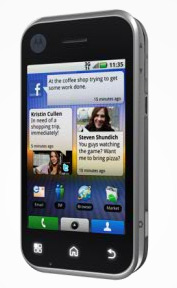A Google exec recently said, "In three years’ time, desktops will be irrelevant." That’s debatable, but there’s no question that mobile use will have grown much more than it already has. Based on comments in a recent keynote, Microsoft CEO Steve Ballmer doesn’t seem to think PC use is going to drop too much, but he did say, "Mobile queries are just going to keep going up and up and up."
Do you think desktops will be irrelevant in 3 years? Share your thoughts here.
A study released last month found that the number of mobile phone subscribers is on track to increase from 4.6 billion to 5 billion globally by the end of 2010. Another study found that consumers are getting more comfortable with mobile shopping.
Mobile Search
Google has dominated the search market for a long time, and while this still continues to be the case, it’s important to note that search in general changes with mobile. People are searching in different ways than just using their favorite search engines. They’re using different apps. They’re using their voices. They’re scanning barcodes for instant access to product information. The number of ways people are finding information with their phones is only going to keep increasing. On mobile, it’s not just about Google, Yahoo, and Bing.
That’s not to say these three aren’t still incredibly important to mobile. In fact, the search share among these top search engines may even become more greatly divided as time goes on. We’re seeing different mobile carriers and manufacturers making deals with these companies, which affect the default search options for various devices. As we discussed before, mobile search engine use may be largely dictated by device popularity, which is (in my opinion) one of the biggest things Bing will have going in its favor in terms of market share – Microsoft’s new Windows Phone 7 phones will come with Bing hardware keys, meaning the most convenient way to search on these devices will likely be to hit a single button taking the user to Bing. If these devices become popular, it could be huge for Microsoft in search.
 As far as Google indexing and mobile sites goes, Google’s Matt Cutts says, "If you can find a way where your existing site will work well in mobile browsers, we’re not worrying about supporting two completely different sites."
As far as Google indexing and mobile sites goes, Google’s Matt Cutts says, "If you can find a way where your existing site will work well in mobile browsers, we’re not worrying about supporting two completely different sites."
To learn about this subject in more detail, read the Google Webmaster Central Blog posts: Help Google Index Your Mobile Site, and Running Desktop and Mobile Versions of Your Site.
Mobile Search Advertising
When it comes to AdWords, Google says to create separate, mobile-focused campaigns so you can optimize keywords, ad text, and landing pages for people using mobile devices. Google shared an interesting case study this week looking at Razorfish’s mobile AdWords approach. They shared the following details:
– The Razorfish team started by duplicating the existing desktop campaigns and switching the settings to target mobile devices with full internet browsers.
– Since their client had a well-known brand name, they focused on branded keyword terms with enough traffic to help them learn quickly about what was working best for their campaigns.
– To measure performance, they tracked several conversion metrics including whether a mobile user looked up the brick and mortar store location or downloaded a coupon from the website. Right away, they saw a 7.5% lower cost per conversion on mobile devices, encouraging them to test ways to optimize their mobile campaigns.
– Razorfish tested whether variations in the campaign’s landing page would affect conversion rates. The team hypothesized that mobile users might be looking to take a specific action, and by starting the user’s experience closer to that action, the client would see better results. As it turned out, for this client, they saw much higher conversion rates when the user was directed to a landing page that showed nearby store locations.
– Finally, they tested variations in the ad text. Four versions of ad text were tested, including the original copy used in desktop campaigns. Each of the three new versions provided over 9.3% lift in conversion rate over the strongest performing copy in their desktop campaigns.
When it comes to Yahoo and Microsoft search advertising, things are about to get more appealing here in general, and presumably, that includes mobile. Microsoft and Yahoo advertisers will have the audiences of both search engines to view ads once Yahoo and Bing get their integration done.
Wrapping Up
One of the most important things any search marketer can do with regards to a mobile strategy, is to simply keep up with the latest mobile trends and innovations. This space is rapidly evolving, and new apps are released frequently. Pay attention to hot apps, and how your target audience is engaging with them. What devices, operating systems, and browsers are hot? Monitor studies and surveys that delve into demographics. Try to stay ahead of the curve.
Do you have a mobile search strategy? What suggestions do you have for improving in this area? Comment.
 According to Kathrin Hille and Justine Lau, Unicom’s president, Lu Yimin, made his position clear by stating, "We are willing to work with any company that abides by Chinese law . . . we don’t have any co-operation with Google currently."
According to Kathrin Hille and Justine Lau, Unicom’s president, Lu Yimin, made his position clear by stating, "We are willing to work with any company that abides by Chinese law . . . we don’t have any co-operation with Google currently."
 "We’ve long been a leader in mobile music and have been at the forefront in evolving the category to offer some robust experiences, but those experiences have largely been available though separate applications," said Mark Collins, senior vice president of Data and Voice Products for
"We’ve long been a leader in mobile music and have been at the forefront in evolving the category to offer some robust experiences, but those experiences have largely been available though separate applications," said Mark Collins, senior vice president of Data and Voice Products for 
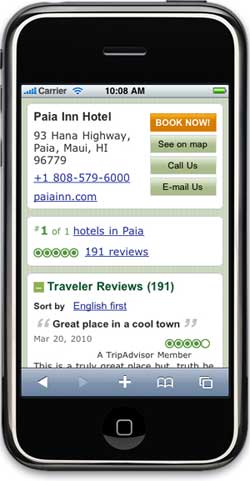

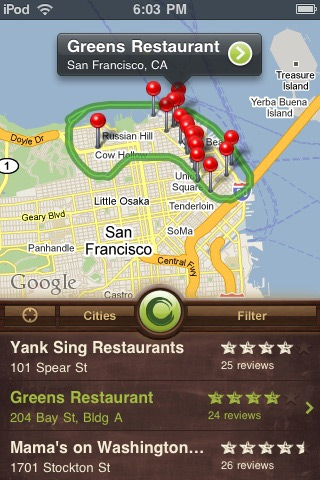
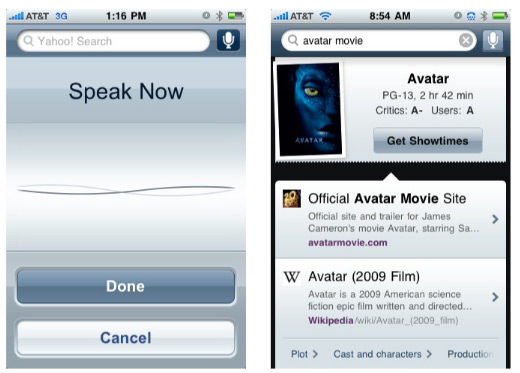
 The Telefonica-Yahoo relationship actually goes back a couple of years, since in late 2007, Telefonica made Yahoo oneSearch the main search service on 15 other mobile portals. This is just a big step forward in terms of people affected and money at stake.
The Telefonica-Yahoo relationship actually goes back a couple of years, since in late 2007, Telefonica made Yahoo oneSearch the main search service on 15 other mobile portals. This is just a big step forward in terms of people affected and money at stake. According to
According to 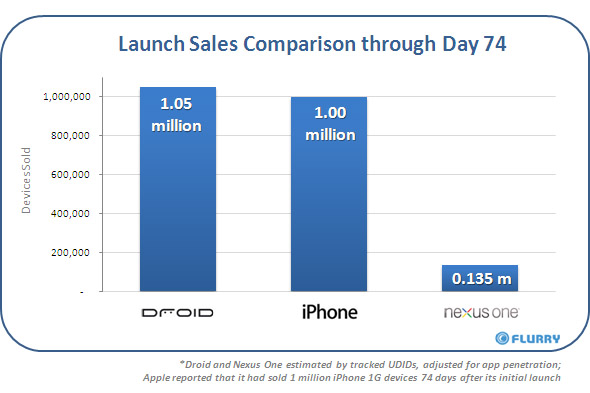
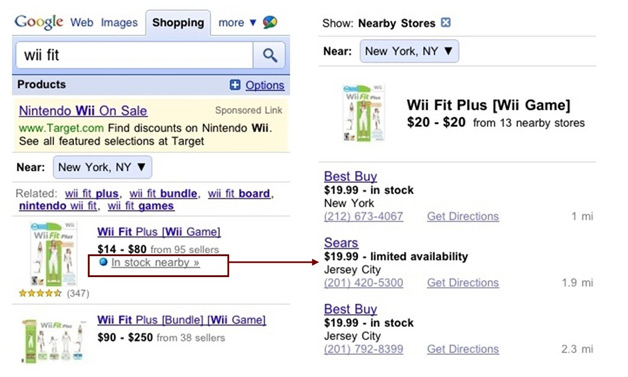
 – Design – Gowalla developers have created a fresh new experience that is more flexible, readable and usable.
– Design – Gowalla developers have created a fresh new experience that is more flexible, readable and usable. As far as Google indexing and mobile sites goes, Google’s Matt Cutts says, "If you can find a way where your existing site will work well in mobile browsers, we’re not worrying about supporting two completely different sites."
As far as Google indexing and mobile sites goes, Google’s Matt Cutts says, "If you can find a way where your existing site will work well in mobile browsers, we’re not worrying about supporting two completely different sites." 

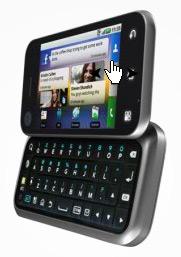 "We believe that consumer choice is one of the most critical components to ensuring a rich and seamless client experience," said Christy Wyatt, corporate vice president of software and services, Motorola Mobile Devices. "Motorola and Microsoft have enjoyed a longstanding collaboration and the addition of Bing services to our Android-based smartphones in China is another important step in empowering our end-users."
"We believe that consumer choice is one of the most critical components to ensuring a rich and seamless client experience," said Christy Wyatt, corporate vice president of software and services, Motorola Mobile Devices. "Motorola and Microsoft have enjoyed a longstanding collaboration and the addition of Bing services to our Android-based smartphones in China is another important step in empowering our end-users."


 No twisting of words or misinterpretations took place here. John Herlihy, Google’s vice president of global ad operations, simply said at University College Dublin’s Digital Landscapes conference, "In three years’ time, desktops will be irrelevant."
No twisting of words or misinterpretations took place here. John Herlihy, Google’s vice president of global ad operations, simply said at University College Dublin’s Digital Landscapes conference, "In three years’ time, desktops will be irrelevant."
